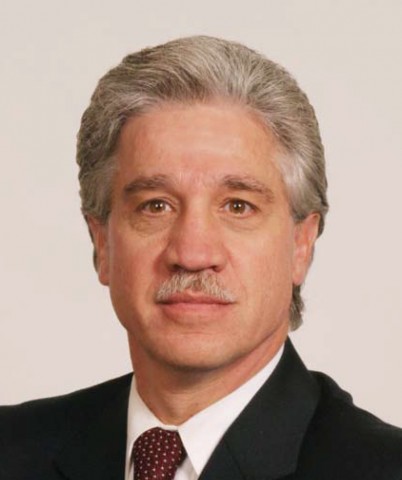
During the Vietnam War, Rich Bringewatt served as a military social worker in an evacuee hospital in Japan. While his experiences solidified his desire to pursue social work as a profession, it was the significant encouragement of professors during his studies at the School of Social Work that focused his interests and prepared him to develop innovative approaches to care for the chronically ill.
Enrolling in the School of Social Work’s community organization sequence in 1971, Bringewatt pursued varied interests in mental health, elderly, and children’s issues. After shifting to the administration and policy sequence, Bringewatt was mentored by Professor John Tropman, who guided him through an independent study on policymaking and played a key role in sharpening his health policy skills. “Dr. Tropman’s affirmation heightened my interest in health policy and helped develop a thought process and skill set that has been important throughout my career,” Bringewatt says.
Pragmatic encouragement motivated Bringewatt to adopt a gerontology specialty. “My areas of interest were broad, but the Institute of Gerontology’s director indicated that the Institute had grants available for those specializing in gerontology. “This is a good lesson,” Bringewatt reflects. “Financial incentives for students make a difference in building capabilities in areas of priority importance to a changing society.”
After graduating, Bringewatt worked for an area-wide demonstration program in Johnstown, Pennsylvania, determining what shape the nascent national system of Area Agencies on Aging should take. When the U-M Institute of Gerontology’s Bob Benedict agreed to head the Pennsylvania Office on Aging, Bringewatt joined him and put his policy knowledge to work.
Since this initial endeavor, Bringewatt has maintained a social entrepreneur spirit in care of special needs populations through service in the public, private, and nonprofit sectors and has held a variety of executive leadership positions at the national, state, and local levels.
Though the settings have varied, his commitment has remained consistent: to implement systemic and policy-level incentives that encourage health care providers to develop seamless networks of care for frail elders, those who have complex care needs, and others who are chronically ill or disabled.
In his current role as president of the National Health Policy Group (NHPG), a Washington, D.C.-based health policy and specialty care consulting organization, Bringewatt brings more than three decades of experience to bear on the question of health care reform.
Among other lessons, he has learned that good intentions and best practice innovation go only so far. Health system change must be anchored in the construction of appropriate financial incentives, new statutory authority, and policy oversight. Moreover, it is in care of high-risk beneficiaries where the U.S. health system is most flawed. Thus, NHPG works to improve policy and practice for high-risk beneficiaries by changing financial incentives and redesigning policy.
“Many people tend to think of social workers as caseworkers, not necessarily as policy analysts or legislators.” However, social work, Bringewatt believes, is all about the application of social values, and health policy is a key element of that process.
Thus, Bringewatt’s focus on strategic change at the national level is designed to benefit the individual. “The problem of care for persons with complex chronic conditions is more about the relationship between pieces of the healthcare puzzle than the efficiency or effectiveness of any one intervention or program. The fix is a systemic one.
“While we are still a long way from an ideal delivery system, it’s exciting to be part of the transformation process.”
—Elizabeth Leimbach Zambone is a freelance editor and writer living in Valparaiso, Indiana.